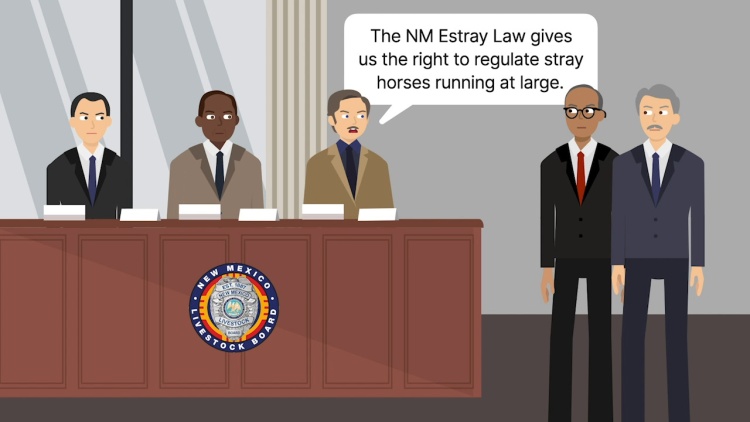Kleppe v. New Mexico
United States Supreme Court
426 U.S. 529 (1976)
- Written by Melanie Moultry, JD
Facts
Congress enacted the Wild Free-Roaming Horses and Burros Act (the Act), 6 U.S.C. §§ 1331-1340, to protect all unbranded and unclaimed horses and burros on federal land from capture, branding, harassment, and death. The Act authorized the secretary of the interior and the secretary of agriculture to enter into agreements with state and local governments in furtherance of the Act’s purposes. The secretaries executed an agreement with the New Mexico Livestock Board (the Board) (plaintiff) in 1973; however, the Board then terminated the agreement on the ground that Congress lacked the power to regulate horses and burros on public lands unless the horses and burros moved in interstate commerce or were damaging public lands. After the Board rounded up and sold 19 unbranded and unclaimed burros at auction, the Bureau of Land Management, under Secretary of the Interior Thomas Kleppe (defendant), demanded that the State of New Mexico (plaintiff) recover the burros and return them to federal lands. The plaintiffs filed a suit in district court, alleging that the Act was unconstitutional. The district court agreed with the plaintiffs and enjoined Kleppe from enforcing the Act. Kleppe appealed. The United States Supreme Court granted review.
Rule of Law
Issue
Holding and Reasoning (Marshall, J.)
What to do next…
Here's why 907,000 law students have relied on our case briefs:
- Written by law professors and practitioners, not other law students. 47,100 briefs, keyed to 996 casebooks. Top-notch customer support.
- The right amount of information, includes the facts, issues, rule of law, holding and reasoning, and any concurrences and dissents.
- Access in your classes, works on your mobile and tablet. Massive library of related video lessons and high quality multiple-choice questions.
- Easy to use, uniform format for every case brief. Written in plain English, not in legalese. Our briefs summarize and simplify; they don’t just repeat the court’s language.





